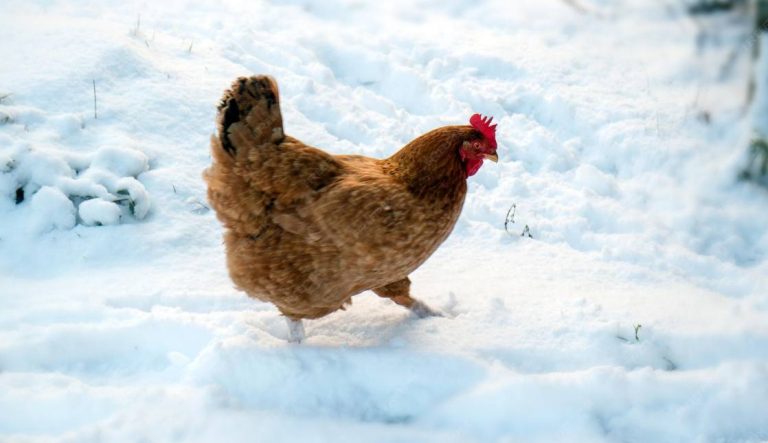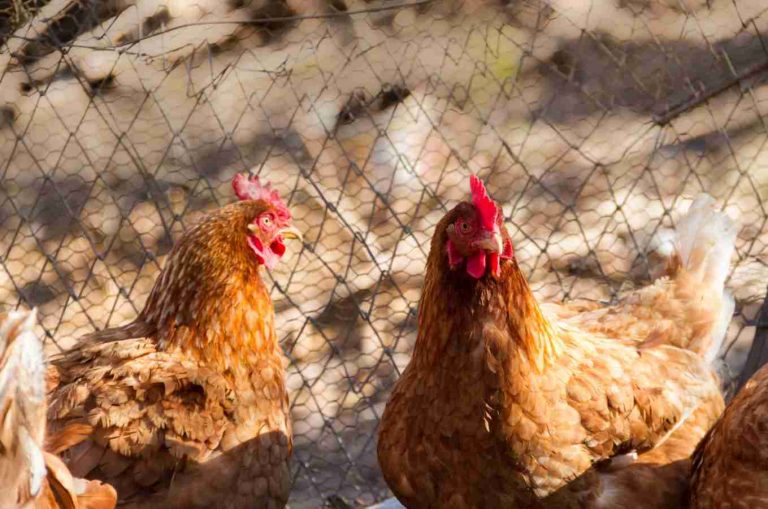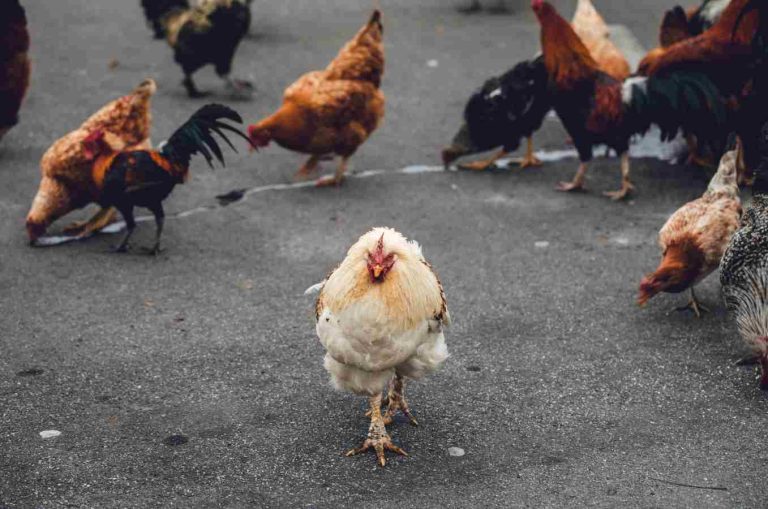Why Is the Correct Temperature in a Winter Chicken Coop Necessary?
What Happens if Chickens Are in Very Cold Weather?
Chickens are tough creatures. They can handle many challenges. But staying in icy conditions too long can hurt them. If temperatures drop much lower than usual, chickens may get frostbite on their combs and wattles. That hurts a lot! Frostbite doesn’t just sting. It can also damage their tissues for good. Plus, cold weather makes chickens use more energy to stay warm. This tires them out. Their immune systems get weaker. So, they’re more likely to get sick.
How Does Temperature Affect Egg-Laying in Winter?
Temperature matters for egg production. Chickens lay fewer eggs in cold weather. They focus on keeping warm instead of laying eggs well during winter. A properly managed coop helps. It keeps the temperature just right. This makes hens feel good and lay more eggs.
Key Parts of a Great Winter Chicken Coop
What Makes a Coop Good for Cold Weather?
Insulation and Airflow: Getting the Balance Right
In winter, a chicken coop needs insulation and good air movement. This keeps chickens warm and healthy in chilly weather. Insulation holds heat inside the coop. It shields chickens from freezing outdoor air. Many newer coops use materials like hot-dip galvanized steel. This traps warmth well. For example, automated ladder layer chicken cages use dip-galvanized steel. It lasts long and insulates effectively. But airflow is just as important. It stops moisture from building up inside. Too much dampness can make chickens’ breathing worse.
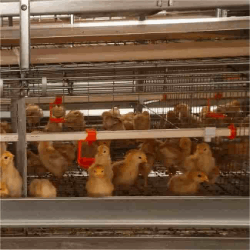
How Heating Pads Keep Chickens Warm
Heating pads warm chicken coops in winter. They give heat where it’s needed without making the whole coop too hot. This saves energy while keeping chickens cozy. It’s a smart way to stay comfortable without high costs.
How Can You Stop Frostbite in Chickens?
To prevent frostbite, keep the coop dry and block drafts. Use tools like water lines in brooding cages. These stop water from spilling and making things wet. Water cups under the lines in brooding cages keep water off manure belts. This improves air quality by reducing dampness. Also, rub petroleum jelly on chickens’ combs and wattles. It acts like a shield against frostbite.
Practical Ways to Keep Your Chicken Coop Warm
How to Insulate Your Coop Well?
Using Natural and Man-Made Materials for Insulation
Materials like straw bales or wood chips hold heat in the coop. They keep it toasty. You can also use man-made items, like foam panels or reflective bubble wrap. These add more warmth to walls and ceilings.
Why Thermal Panels Help Retain Heat
Thermal panels are made for chicken coops. They hold in heat while staying safe. These panels are simple to set up. They spread warmth evenly across the coop.
Should You Add Extra Heat Sources?
Safe Heating Choices for Your Coop
Extra heat can help when it’s freezing outside. But safety comes first. Infrared heaters and ceramic heat emitters work well. They give steady warmth without starting fires. Always keep heaters away from anything that can burn.
Handling Moisture and Airflow in Winter
Why Is Good Airflow Important in Winter?
Stopping Condensation and Frost in the Coop
Proper air movement prevents condensation. It lets out damp air and brings in fresh air. This keeps the coop balanced. It also stops frost from forming. Frost can harm chickens in cold weather.
How Zeus Products Support Good Airflow
Zeus climate control system works with exhaust fans and windows. These are placed for cross-ventilation. They control air movement in coops. This clears out bad smells while keeping the space warm for chickens.
Tips for Managing Humidity
To control humidity, keep bedding dry. Replace it often. Add exhaust fans or vents in smart spots. These stop extra moisture from collecting in the coop.
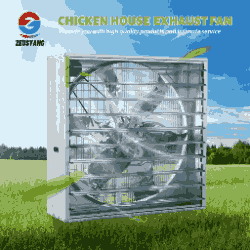
By using these tips and tools like heating pads and thermal panels, you can build a perfect winter home for your chickens. This keeps them healthy and active in cold weather.
Feeding and Watering Plans for Cold Weather
What Should You Feed Chickens to Keep Them Warm?
High-Energy Foods and Their Effect on Energy
In winter, when snow falls, chickens need food full of energy. This helps them stay warm and lively. High-energy treats like cracked corn and black oil sunflower seeds give them a boost. These keep chickens snug in cold weather. Protein foods, like mealworms, also make them stronger against the cold. A complete winter diet keeps chickens warm. It also helps their health and egg-laying.
How to Stop Water from Freezing in the Coop?
Heated Waterers as a Dependable Option
Water is critical for chickens. But it’s hard to keep it from freezing in winter. Heated water systems solve this. They provide liquid water in the coop all the time. These systems are made to work in very cold weather. Chickens always have water to drink.
Common Problems and How to Fix Them
Handling Snow and Ice Near the Coop
Practical Tips for Clearing Paths and Entrances
Snow and ice around the coop can block chickens’ movement. It may also limit their access to food and water. To fix this, clear paths often. Use shovels or snow blowers. Spread sand or gravel to stop slipping. Add straw or wood chips to surfaces. This insulates and makes walking safer for chickens.
Keeping Chickens Safe from Predators in Winter
In winter, predators come closer to homes looking for food. This raises the chance of coop attacks. Make sure your coop is safe. Use strong, weather-proof hot-dip galvanized steel mesh for fences. For example, automated ladder layer chicken cages with dip-galvanized steel protect well against predators. Lock all doors with bolts. Check them regularly for damage.
FAQ
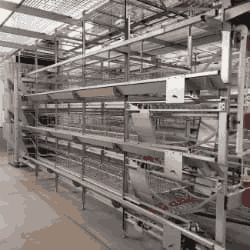
Q: How much space do chickens need in a winter coop?
A: In winter, chickens need space to move freely. This is especially true when they’re inside more. Experts suggest at least 450 square centimeters per chicken. This keeps them happy. For example, broiler cages with 500 square centimeters per chicken give plenty of room to roam.
Q: What materials insulate a winter chicken coop well?
A: Natural ones like straw bales or wood chips hold heat nicely. Man-made options, like foam panels, also keep warmth in well.
Q: Is it okay to heat a chicken coop?
A: Yes, if it keeps chickens warm. Use infrared heaters or ceramic emitters. They’re safe and won’t start fires.
Q: How do I prevent moisture buildup inside the coop?
A: To avoid moisture, ensure good air movement. Add exhaust fans or vents in key spots. They clear damp air and let fresh air flow.
Q: Are Zeus chicken coops good for poultry farms?
A: Yes, they suit small backyard coops and big commercial farms. Their air and heat systems pair with ventilation setups. This creates great living spaces for chickens.


